Unlocking the Full Flavor of Chopped Chives: A Pro's Guide to Storage and Usage
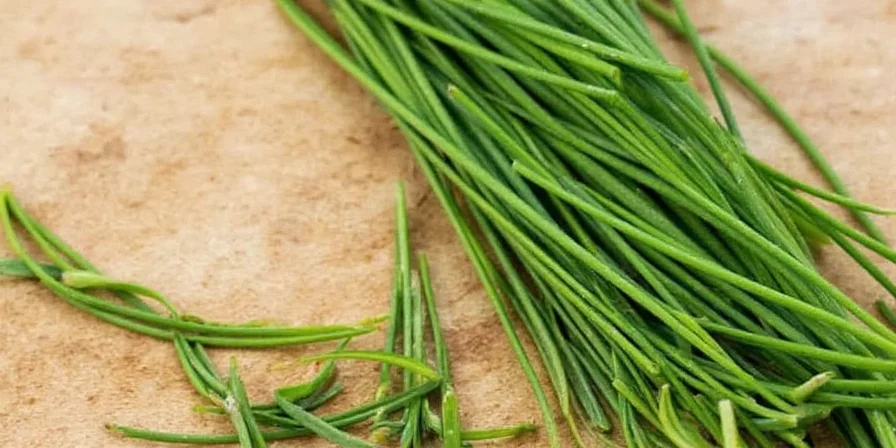
If you're like most people who love cooking, you've probably found yourself staring at the fridge, wondering why your chives have lost their vibrant flavor. Chopped chives, though small, are powerhouses of flavor that can elevate any dish from ordinary to extraordinary. But like many herbs and spices, they can be tricky to store and use effectively. In this blog, we’ll dive deep into the world of chipped chives, how to store them for maximum freshness, and how to use them like a pro in your kitchen.
What Exactly Are Chopped Chives?
Before we get into the nitty-gritty of storage and usage, it's important to understand exactly what chopped chives are. Chives are a member of the Allium family, which also includes onions, garlic, and leeks. Unlike their more pungent relatives, chives have a mild, grassy, and slightly sweet flavor with a hint of onion. When chopped, they release even more of their aromatic oils, making them a delightful addition to many dishes.
Chopped chives are commonly used in Western cuisine, especially in dishes like scrambled eggs, soups, salads, and as a garnish for baked potatoes or seafood. Their subtle flavor makes them a great complement to stronger ingredients, allowing them to shine without overpowering the other elements of the dish.
Chopped Chives vs. Other Alliums
| Herb/Spice | Flavor Profile | Best Used In |
|---|---|---|
| Chopped Chives | Mild, grassy, slightly sweet | Eggs, soups, salads, seafood |
| Chopped Garlic | Pungent, sharp, umami-rich | Meat, pasta, sauces |
| Chopped Onion | Sharp, sweet, pungent | French fries, burgers, stews |
As you can see, chopped chives are unique in their flavor and usage. They are not a substitute for garlic or onion, but rather a delicate enhancement that brings a touch of elegance to any dish.
Pro Tips for Storing Chopped Chives
Now that we've covered what chopped chives are, let's move on to the most important part: storing them properly. If you're not careful, your chives can quickly lose their flavor, become slimy, or even spoil before you get a chance to use them.
1. Refrigerate Immediately
Once you've chopped your chives, it's best to store them in the refrigerator as soon as possible. Exposure to room temperature can cause them to wilt and lose their vibrant color. A good rule of thumb is to use them within 3-4 days of chopping for the best flavor and texture.
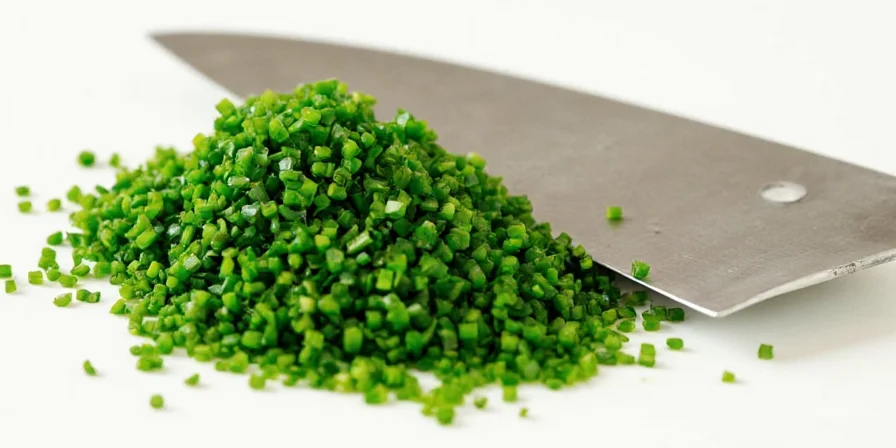
2. Use an Airtight Container
One of the best ways to store chopped chives is in an airtight container. This helps to preserve their moisture and aroma, preventing them from drying out or absorbing unwanted flavors from the fridge. A glass jar with a tight-fitting lid is ideal, but a plastic container with a sealable lid will also work.
Make sure to leave a little bit of space at the top of the container to allow for expansion, and avoid filling it to the brim. This will help prevent the chives from getting crushed or bruised, which can lead to faster spoilage.
3. Consider Freezing for Long-Term Storage
If you're not going to use your chopped chives within a few days, freezing is a great option. Frozen chives can last for up to six months, and they are a convenient option for adding flavor to dishes without having to worry about freshness.
To freeze chopped chives, spread them out on a baking sheet and place them in the freezer for about an hour. Once they're frozen, transfer them to a labeled ziplock bag or airtight container. This method prevents them from clumping together, making it easier to use them in small portions later on.
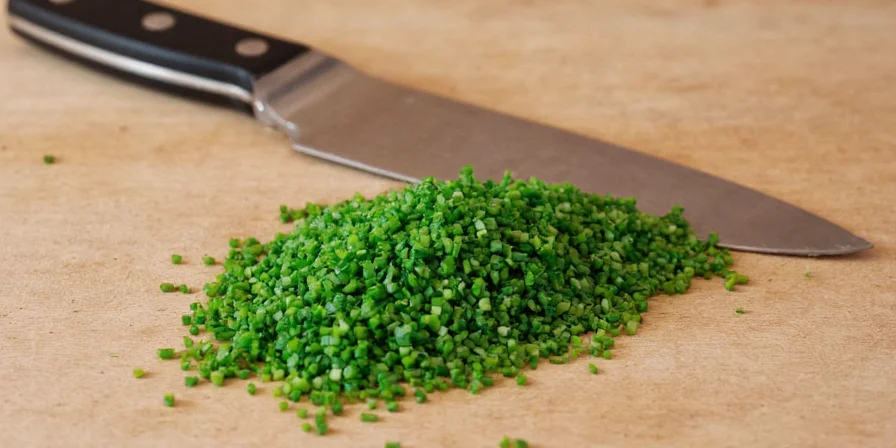
4. Keep Them Dry
Moisture is the enemy of any herb or spice, and chives are no exception. Make sure your chives are completely dry before storing them, as excess moisture can lead to mold and spoilage. If they are wet from washing or chopping, lay them out on a paper towel to dry before storing.
5. Avoid Light and Heat
Light and heat can also cause chives to deteriorate quickly. That's why it's important to store them in a cool, dark place in the refrigerator. Avoid placing them near the door or any heat source, as this can cause them to lose their flavor and texture more rapidly.
How to Use Chopped Chives Like a Pro
Now that we've covered how to store chopped chives, let's move on to the fun part: using them in your cooking. Chopped chives are incredibly versatile and can be used in a wide variety of dishes. Here are some of the best ways to use them like a pro:
1. Garnish Dishes for a Pop of Flavor
One of the simplest and most effective ways to use chopped chives is as a garnish. Sprinkle them on top of soups, salads, omelets, or baked potatoes for a quick burst of flavor and color. They add a fresh, herbaceous note that can elevate even the simplest of dishes.
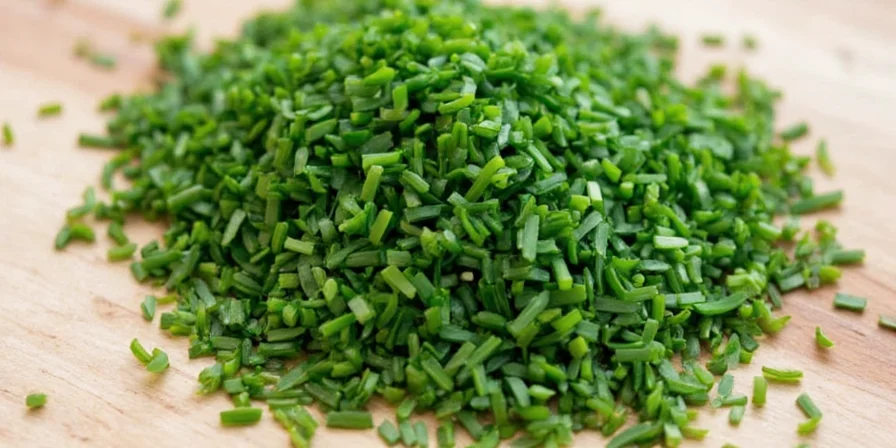
2. Add Them to Eggs for Extra Flavor
Chopped chives are a classic addition to scrambled eggs, omelets, and frittatas. They add a subtle, herbaceous flavor that complements the richness of the eggs perfectly. For best results, add the chives toward the end of cooking to preserve their flavor and texture.
3. Use Them in Soups and Stews
Chopped chives can also be a great addition to soups and stews. They add a fresh, aromatic note that can enhance the overall flavor of the dish. However, because they are delicate, it's best to add them toward the end of cooking to avoid overcooking and losing their flavor.
4. Mix Them Into Dips and Spreads
Chopped chives are a fantastic addition to dips and spreads like hummus, guacamole, and sour cream. They add a fresh, herbaceous flavor that can elevate the overall taste of the dip and make it more interesting.
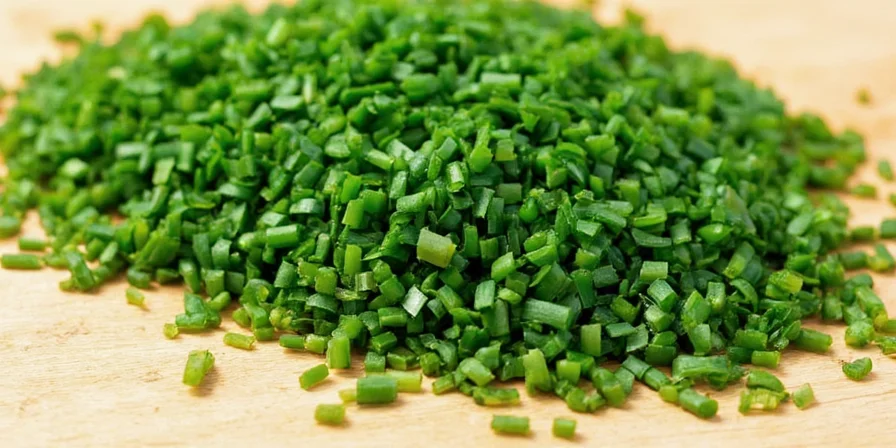
5. Use Them in Baked Goods
Believe it or not, chopped chives can also be used in baked goods. They add a subtle, herbaceous flavor to things like scones, muffins, and even bread. For best results, add them toward the end of the mixing process to avoid overcooking and losing their flavor.
Common Mistakes to Avoid When Using Chopped Chives
Even though chopped chives are relatively simple to use, there are a few common mistakes that people often make. Here are a few things to avoid:
- Overcooking them: Chopped chives are delicate and can quickly lose their flavor and texture if overcooked. It's best to add them toward the end of cooking to preserve their flavor.
- Using too much: Because they are mild, it's easy to overuse chopped chives and overpower the other flavors in the dish. Start with a small amount and add more as needed.
- Using them in high-heat cooking: Chopped chives are not ideal for high-heat cooking like frying or grilling. They are best used in low-heat or no-heat applications like garnishes, dips, and baked goods.
By avoiding these common mistakes, you can ensure that your chopped chives are used to their full potential and that your dishes are always delicious.
Final Thoughts
Chopped chives may seem like a small and unassuming ingredient, but they can have a big impact on the flavor of your dishes. Whether you're using them as a garnish, adding them to eggs, or mixing them into dips, they are a versatile and flavorful addition to any recipe.
By following these pro tips for storing and using chopped chives, you can ensure that your chives are always fresh, flavorful, and ready to use. So the next time you find yourself with a bunch of chives in the fridge, don't waste them—put them to good use and elevate your cooking to the next level.
Remember, the key to using chopped chives like a pro is to store them properly, use them in the right way, and avoid common mistakes. With a little bit of care and attention, you can unlock the full flavor of this amazing herb and take your cooking to new heights.
Further Reading
If you're interested in learning more about other herbs and spices, be sure to check out our other articles on spice storage and usage hacks. We have a wealth of information to help you become a master in the kitchen, no matter what your skill level.
Happy cooking, and may your chives always be fresh, flavorful, and ready to use!










 浙公网安备
33010002000092号
浙公网安备
33010002000092号 浙B2-20120091-4
浙B2-20120091-4